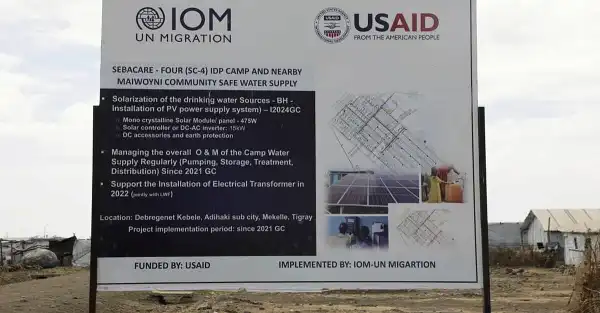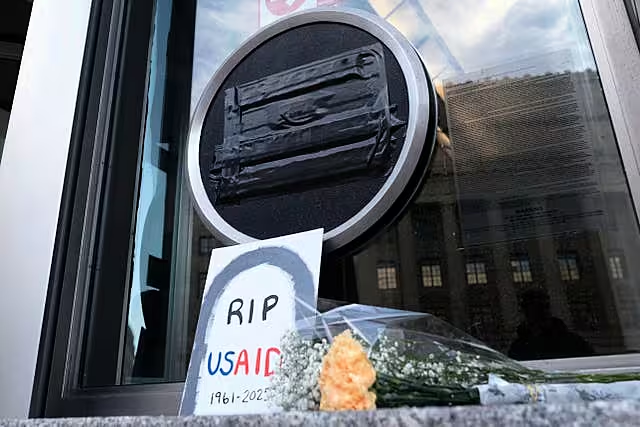
The Trump administration has informed the World Food Programme (WFP) and other partners that it is ending some remaining life-saving humanitarian initiatives in the Middle East, according to US and UN officials.
A letter addressed to USAID partners and reviewed by The Associated Press said the projects were canceled “as a matter of convenience to the U.S. government” at the direction of Jeremy Levin, a senior deputy in the Office of Government Effectiveness appointed by Trump to oversee and complete the dismantling of the U.S. Agency for International Development.
A USAID spokesman said about 60 contract termination notices had been sent in the past week, including major projects for the World Food Programme, the world's largest provider of food aid.

The UN representative in the Middle East said WFP had received cease-operation notices in Lebanon, Jordan and Syria.
A USAID official also noted that some of the last remaining sources of U.S. funding for key initiatives in Yemen, Somalia, Afghanistan and Zimbabwe, including programs to provide food, water, health care and shelter to people displaced by conflict, have been affected.
The Trump administration has previously promised to maintain these most urgent, vital initiatives despite cuts to aid and development programs through the State Department and USAID.
Trump has already cancelled thousands of USAID contracts, accusing the agency of ineffectiveness and support for liberal ideas.
The recently terminated contracts were among approximately 900 active programs that Secretary of State Marco Rubio has notified Congress of his intention to maintain, according to a USAID spokesperson.
There was no comment from the State Department.
That same day, the U.S. Conference of Catholic Bishops announced it was ending a half-century of cooperation with the federal government to help refugees and children, saying the “heartbreaking” decision followed the Trump administration’s abrupt halt in refugee resettlement funding.
The gap will inevitably lead to a reduction in the services Catholic organizations were previously able to provide to those in need, the bishops said.
“As a national effort, we simply cannot sustain the work at the current level or in the current form,” said Archbishop Timothy Broglio, president of the USCCB.
“We will seek to find alternative sources of support for those who previously benefited from these programs. We ask for your prayers for the staff and refugees who have been affected,” he added.
In February, Catholic bishops
Sourse: breakingnews.ie






